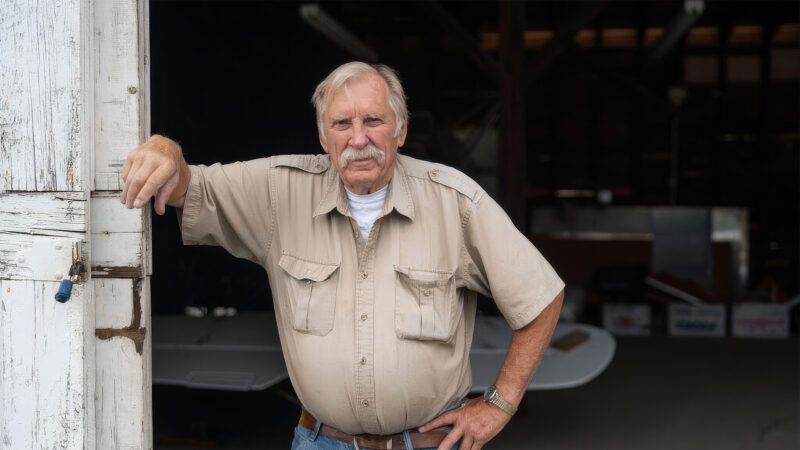An Alaska Man's $95,000 Plane Was Seized Over a 6-Pack of Beer. Now He's Taking His Case to the Supreme Court.
Alaska has been trying to seize Ken Jouppi's Cessna for 13 years over a misdemeanor crime.

An Alaska man is petitioning the Supreme Court to consider whether the government's seizure of his $95,000 plane for transporting an illicit six-pack of beer is an excessive fine under the Eighth Amendment.
The Institute for Justice, a public interest law firm, filed a petition for writ of certiorari today on behalf of Ken Jouppi, an 82-year-old Alaskan bush pilot, asking the Supreme Court to rule on whether states should consider the gravity of a defendant's specific offense, rather than an abstract view of the general crime.
Jouppi was convicted of a misdemeanor in 2012 when state troopers searched his plane before takeoff and discovered that a passenger was attempting to bring several cases of beer to a "dry" village where alcohol is prohibited. (Jouppi was only culpable for a single six-pack of Budweiser that troopers said was in plain sight.)
But the state wasn't through with Jouppi. For the past 13 years, prosecutors have sought to seize his Cessna U206D through asset forfeiture, a process which allows police and prosecutors to seize property connected to criminal activity.
The Institute for Justice says the case of Jouppi's Cessna is a perfect example of why the Eighth Amendment exists.
"The Excessive Fines Clause of the constitution was built for cases like this," Sam Gedge, a senior attorney at the Institute for Justice, said in a press release. "As government agencies increasingly exploit fines and forfeitures to pad their budgets, it's vital that the Supreme Court make clear that the Excessive Fines Clause is a meaningful check on government overreach."
And it's a chance for the Institute for Justice to build on its previous Supreme Court victory regarding excessive fines and fees.
In 2019, the Supreme Court ruled in response to an Institute for Justice lawsuit that the Eighth Amendment's prohibition on excessive fines and fees applies to states under the incorporation doctrine. In the underlying case, Indiana police had seized a Land Rover from a man named Tyson Timbs for a minor drug crime.
But while the Supreme Court ruled that states are bound by the Eighth Amendment, the justices left it up to state courts to determine what constitutes an excessive fine.
Many states adopted proportionality tests that involve some analysis of personal culpability. In 2021, for example, the Indiana Supreme Court rejected prosecutors' arguments that there should be no proportionality limit on seizures in drug cases like Timbs', and it ordered Timbs' car to be returned to him after eight years in legal limbo.
However, other courts, such as the Alaska Supreme Court and the U.S. Court of Appeals for the 11th Circuit, have focused instead on the maximum penalties for worst-case offenders and more abstract social ills that the criminal statutes in question sought to address.
Under that rubric, the Alaska Supreme Court ruled this April that the forfeiture of Jouppi's plane was not excessive.
"Alcohol abuse in rural Alaska leads to increased crime; disorders, such as alcoholism; conditions, such as fetal alcohol spectrum disorder; and death, imposing substantial costs on public health and the administration of justice. Within this context, it is clear that the illegal importation of even a six-pack of beer causes grave societal harm," the ruling states. "This factor strongly suggests that the forfeiture is not grossly disproportional."
The Institute for Justice argues in its petition that this interpretation flies in the face of the historical understanding of the Excessive Fines Clause, and that the question of proportionality "implicates the Constitution's most textually explicit check on extravagant economic sanctions—including both civil and criminal forfeitures."
"This case isn't just about me or my airplane anymore," Jouppi said in an Institute for Justice press release. "I'm in my 80s now, and I've been fighting this for over a decade because I see it as my duty to ensure that the Bill of Rights actually means something in protecting against government overreach."


Show Comments (35)